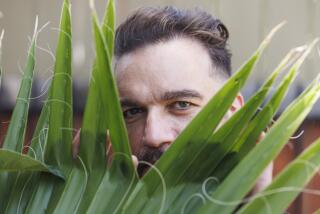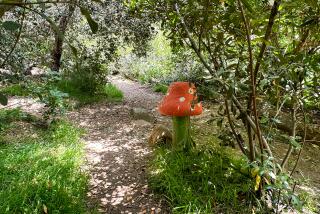Cemetery for forgotten babies commemorates its 200th burial
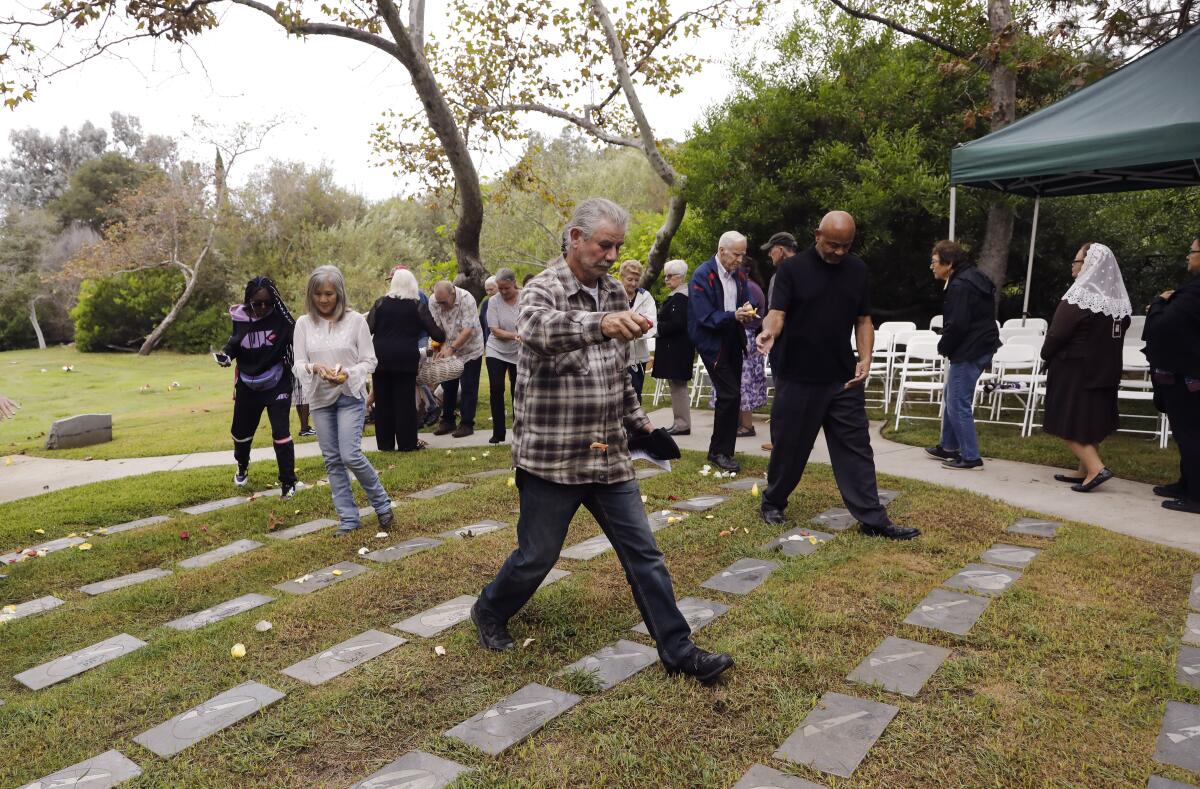
SAN DIEGO — “Adam, Jaren, Angel ... John, Sebastian, Star ... Anthony, Billy, Carmelita ... Solomon, Natalie, Dylan ... Maya, Michelle and Roger.”
Under threatening gray skies Saturday morning, these and 185 other names were recited one by one at the Garden of Innocence. These are the 200 abandoned babies who have found a home and surrogate family in a quiet, tree-lined knoll at El Camino Memorial Park in Sorrento Valley.
Over the last 20 years, a group of dedicated volunteers has collected these unwanted babies from local morgues, given them a name, placed them in a handmade wood coffin or urn and provided them with a grave, a grave marker and a well-attended memorial service complete with a release of doves.
Saturday’s service commemorated the recent interment of Roger, the 200th baby buried in the plot since the first child, Adam, was placed nearby on June 19, 1999. There to sing a song of farewell for Roger and all the other babies was Elissa Davey, who founded the Garden of Innocence two decades ago because nobody else would.
“These babies needed help and we needed people to do this, but nobody was budging. Someone had to do it, so I guess it had to be me,” said Davey, 71, a real estate agent and notary from Vista.
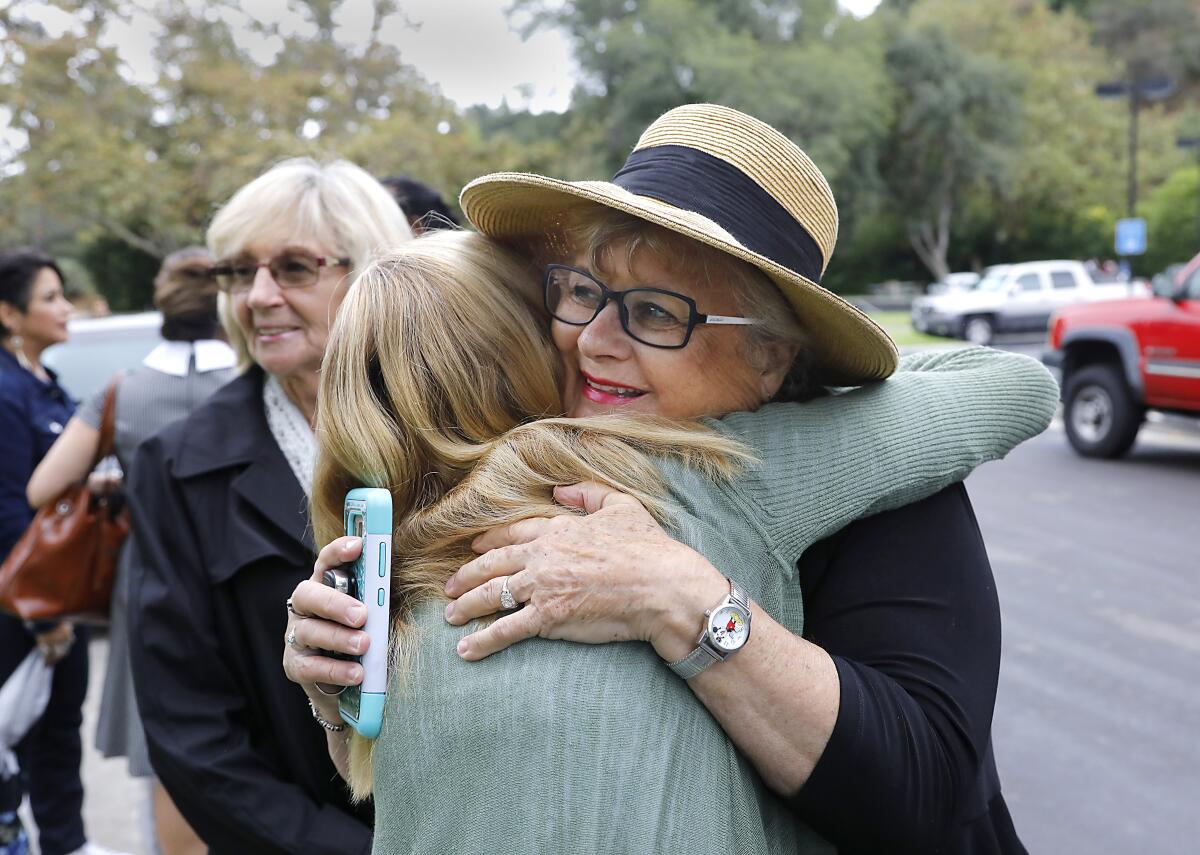
The idea for the project began percolating in Davey’s mind in 1998 when she heard about a cemetery for unidentified babies in Yucaipa called the Garden of Angels. That December, she read a story in the San Diego Union-Tribune about a stillborn boy dumped in a trash can in Chula Vista. She called the coroner’s office to find out what would happen to the boy and he said if the body was unclaimed, it would be buried in an unmarked grave at Mount Hope Cemetery. If she could provide the boy with a dignified burial, he promised to release the body to her.
After six months of planning, paperwork and volunteer recruiting, Davey buried the first baby, with the appropriate name of Adam. Every year since, an additional 10 or so babies join the garden.
Over the years, Davey has expanded the project to 13 other cities in California, Oregon and Missouri. This month, the 400th baby will be buried at a Garden of Innocence, either in Fresno or San Francisco. Davey’s goal before she dies is to have a Garden of Innocence in all 50 states, but her savings for the national project has dwindled to just $6,000.
“It feels really good to know I’m doing something special for these children, but it’s a letdown too, because I’m not done yet,” she said. “We really need donations to make this happen. There are so many babies out there in every state that don’t have anyone to take care of them.”
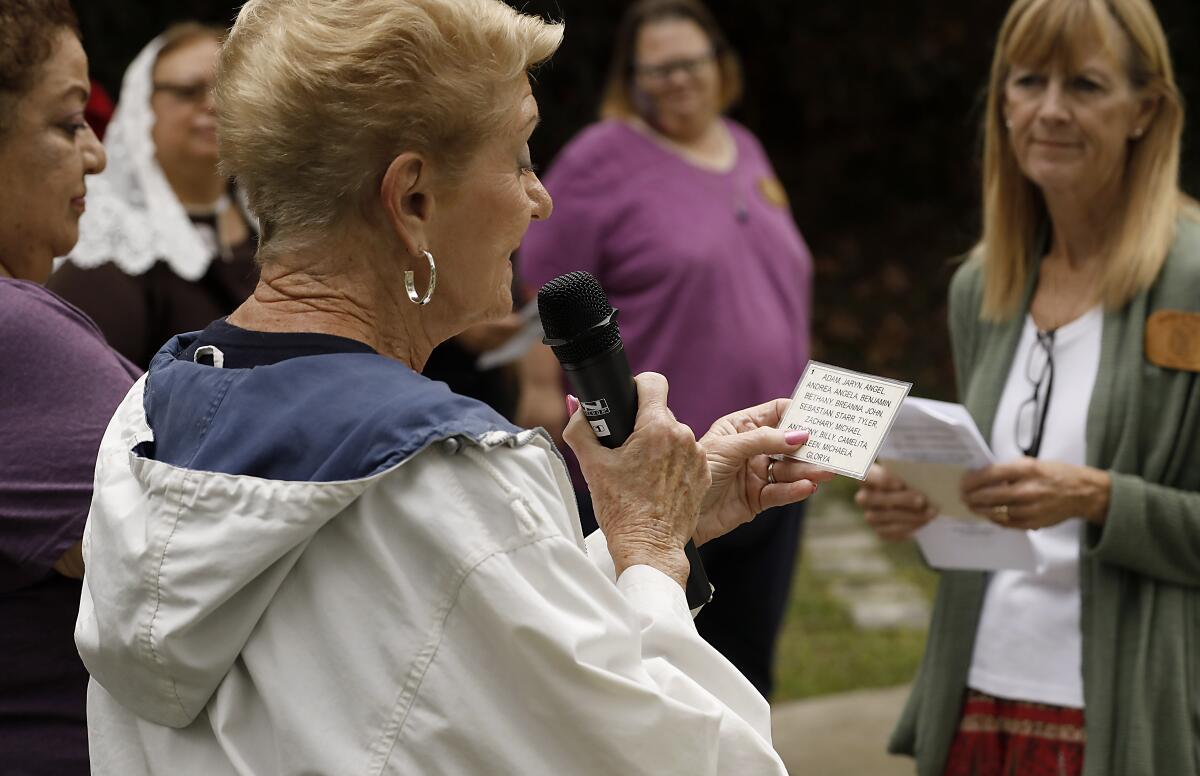
About one-third of the babies buried in the Garden of Innocence were found abandoned in trash cans, creek beds, forests and roadsides. They include Michael, who was found floating in a pool of solid waste at a San Diego wastewater treatment plant in January 2000.
Most of the rest were babies who died in childbirth or in the days afterward at local hospitals and their bodies were left behind without any instructions from the parents. In some cases, the young mothers had hidden their pregnancy from family and wanted to erase any evidence of the birth. In other cases, the parents lacked the financial means to pay for a burial or cremation. In many cases, the mothers were addicts, incapable mentally or physically of paying for or arranging a burial.
Some of the babies lived for several months, like Samuel, who was killed by his mentally ill mother and then thrown from the second-story window of an Escondido apartment. Not every mother walked away from her baby’s body by choice. One mother was in jail when her baby was stillborn. When she was released, the coroner directed her to Davey, who took the woman to the garden to visit her child’s grave.
The caskets and urns are handmade with oak, pine and hickory wood by Boy Scouts and woodworkers throughout the country. Then they’re lined with hand-quilted padding glued into place by volunteers like Pat Goscienski of Oceanside, who said she finds the work “uplifting and inspiring.” The caskets are then filled with a receiving blanket, hand-knit blanket and a tiny pillow. Each baby also gets a small toy to take with them into the afterlife.
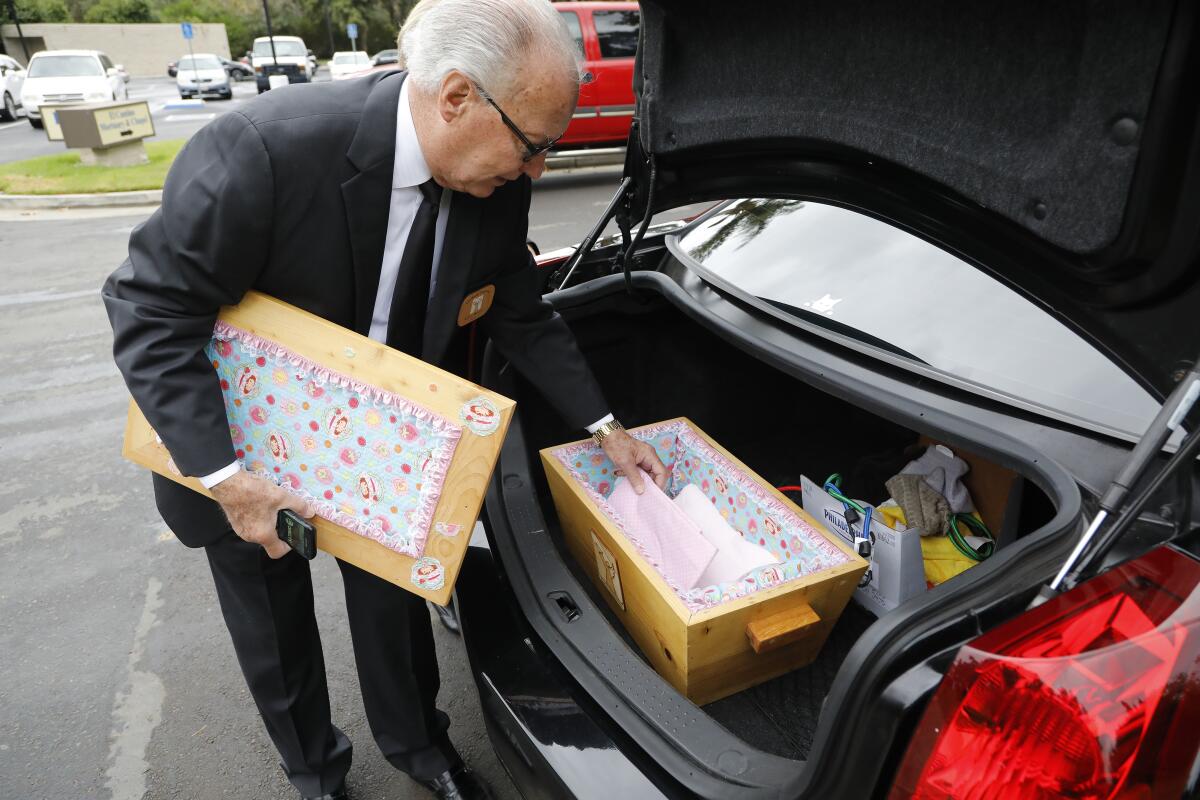
For the first 150 babies, Davey took the caskets to morgues and gently unzipped the babies from their body bags, wrapped them in blankets and drove their caskets to the El Camino mortuary. Sometimes she sang nursery songs to the babies, like Mikayla, as she drove. Now, other volunteers have taken on this task.
The burial services, conducted every few months depending on need, are usually attended by 100 or more people. Some attendees are the 15 to 18 volunteers who keep the organization running. But many are first-timers who come out of curiosity and usually come back or donate.
Each burial, sometimes for two or three babies at a time, features a procession by members of the Knights of Columbus, songs, a heart-shaped funeral wreath of red roses and a reading of a unique poem written for each child. Attendees gather in a large circle and pass the breadbox-size caskets one to another by hand, a gesture Davey said is designed to touch each baby with the loving hands of their newly adopted family.
On March 1, 2008, Mira Mesa resident Allan Musterer read a story in the Union-Tribune about the 100th burial service that day at the garden and he rushed to wake up his wife, Carol. Musterer, then 65, was preparing to retire from his position as a minister at the New Apostolic Church in Vista and had been praying for a new faith mission. From the moment the casket of baby Annemarie was placed in his hands during the service that day, he knew he’d found it.
“I let the experience sink into my soul and felt like I was being called,” he said.
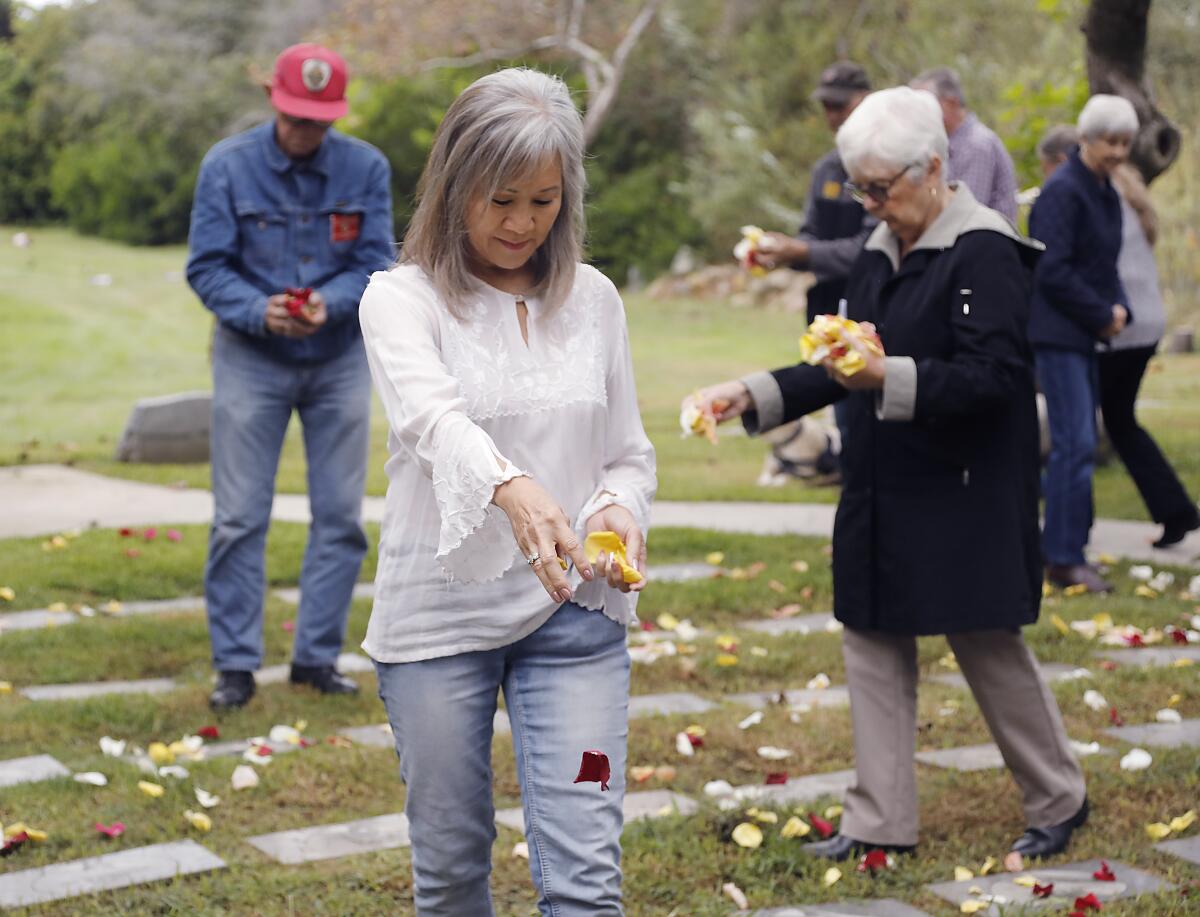
Musterer, now 76 and a retired engineer, is the president of the Garden of Innocence at El Camino. He works with Davey to coordinate services and volunteers and help raise money for the organization. Over the years, the garden has been run solely on donations and proceeds from car shows and other fundraisers.
Money is being raised to buy a new plot in the garden for burying cremation urns, because there’s not much room left for the larger caskets. Many longtime volunteers have also asked to be buried near the babies, so a columbarium will be built on-site. Niches will be sold for $5,000, with all proceeds benefiting future garden operations and burial services.
During Saturday’s commemoration, Musterer told the small crowd that he has found his work with the garden spiritually fulfilling, because he sees these babies as bringing together groups of strangers to share the power of love, family and faith.
“I’ve been blessed for the past 11 years since Annemarie was laid to rest,” he said. “Every time a baby comes to the garden, they become an ambassador for God’s love. These 200 babies are a massive army marching in love.”
For service and historical information on the Garden of Innocence, visit gardenofinnocence.org.
Kragen writes for the San Diego Union-Tribune.
More to Read
Sign up for Essential California
The most important California stories and recommendations in your inbox every morning.
You may occasionally receive promotional content from the Los Angeles Times.

